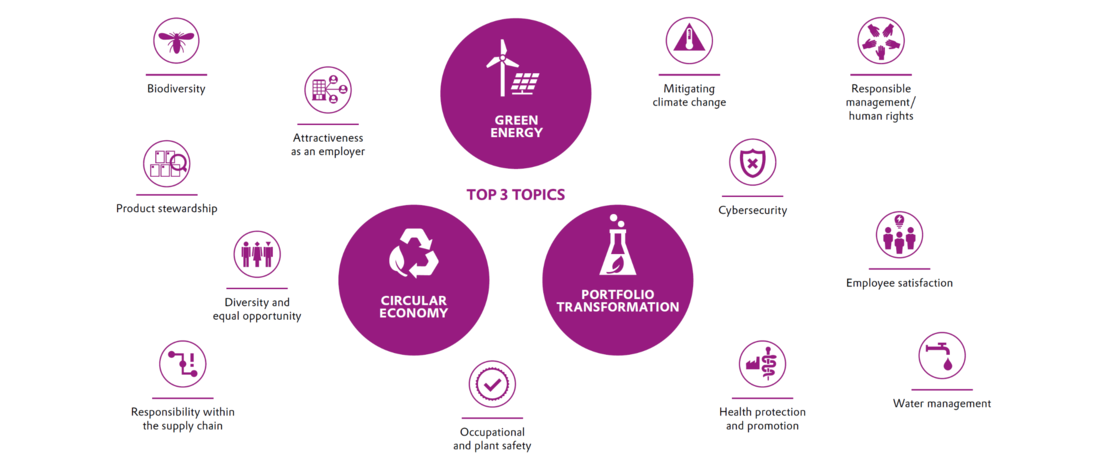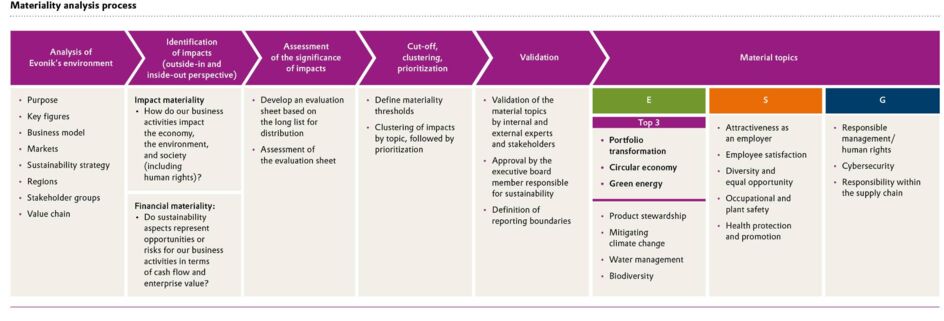
materiality analysis
Our sustainability management is aligned to the criterion of materiality.
2022 we performed a completely new materiality analysis. Based on the concept of double materiality, 15 material sustainability topics were identified for Evonik.
The top three materiality topics identified for Evonik are:
- „Green energy“,
- "Portfolio Transformation"
- „Circular Economy“
New topics compared with our materiality analysis 2018 are green energy, cybersecurity, and employee satisfaction. The results of our materiality analysis are grouped in six areas of action:
- Portfoliotransformation
- Responsible Corporate Governance/Human Rights
- Cyber Security
- Responsibility in the supply chain
- Circular Economy
- Product Stewardship
- Green energy
- Fight climate change
- Biodiversity
- Water Management
- Attractiveness as an employer
- Employee satisfaction
- Diversity and equal opportunities
- Plant and occupational safety
- Health protection and promotion
MATERIALITY ANALYSIS ACTIVITIES IN 2023
Since the materiality analysis was carried out, the ESRS has evolved, with interim results from November 2022 and June 2023 and the final ESRS from 31 July 2023. Against this backdrop, this year we compared whether our approach to materiality analysis meets the requirements of the final ESRS versions.
The topics identified as material were the focus of our ongoing project work in 2023. This is exemplified by projects on the top 3 key sustainability topics, which were further advanced in cooperation with renowned partners from the business world. The agreement of a PPA (Power Purchasing Agreement) with EnBW for the purchase of green electricity from the He Dreiht offshore wind farm, as well as the commissioning of a pilot electrolysis project as part of the H2annibal project, which was developed in cooperation with Siemens Energy, illustrate our commitment to green energy. On the topic of the circular economy, we are working with BMW and other partners along the value chain to increase the rate of recycled plastics in the production of new vehicles. Together with Beiersdorf, we are committed to the use of more sustainable raw materials in skin care products. This goes hand in hand with a sustainable transformation of our product portfolio.
More information on the projects mentioned can be found here.
For the sustainability topics published in our materiality analysis, an anonymous complaints mechanism is in place for both employees and external stakeholders. An important tool for this is our whistleblower hotline.
As part of the new materiality analysis, we also revised our stakeholder management concept.
MATERIALITY ANALYSIS PROCESS AND RESULTS

An enlarged presentation of the process and the results can be found here.
